..
Female Infant
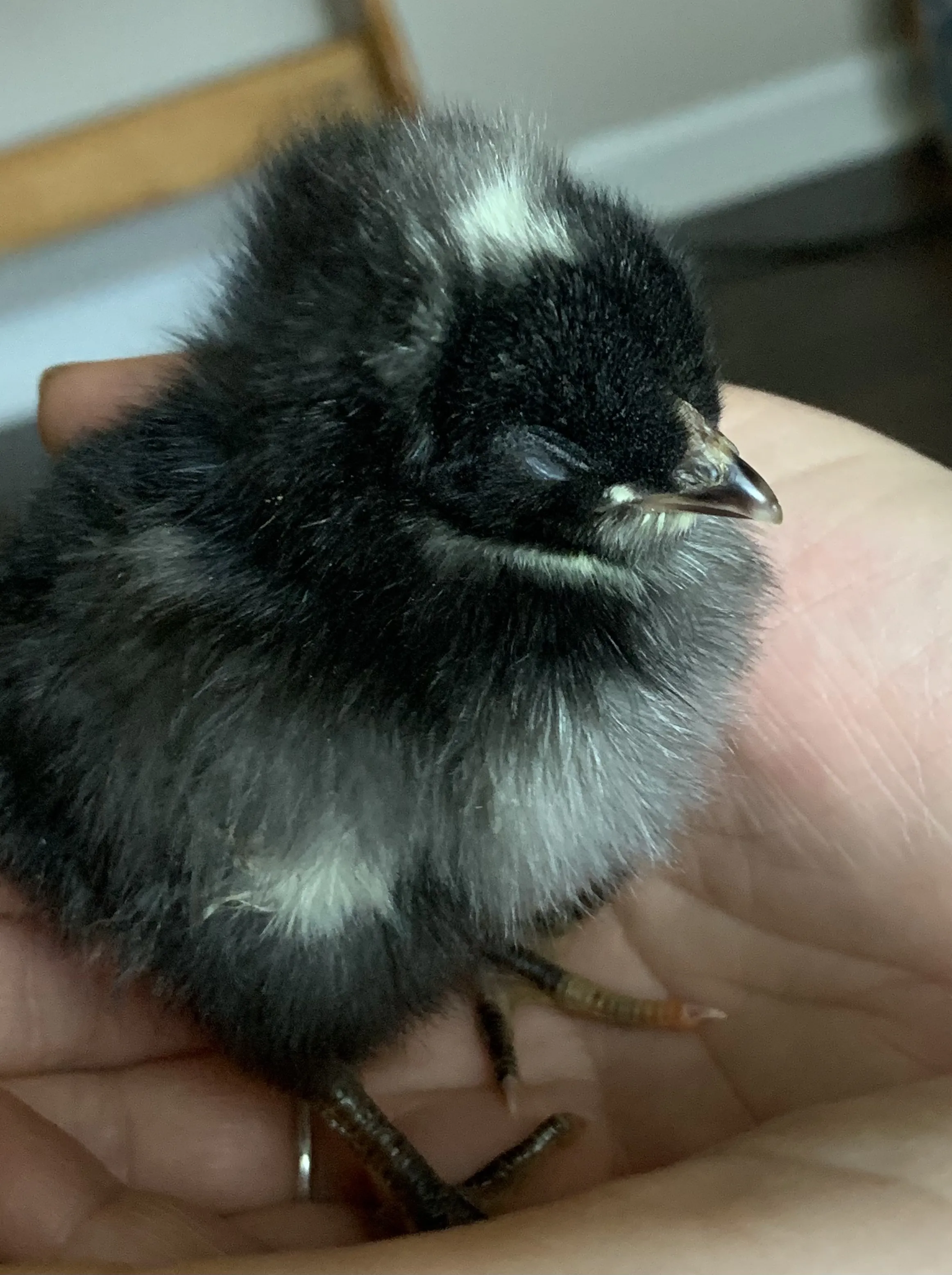 Female Baby
Female Baby
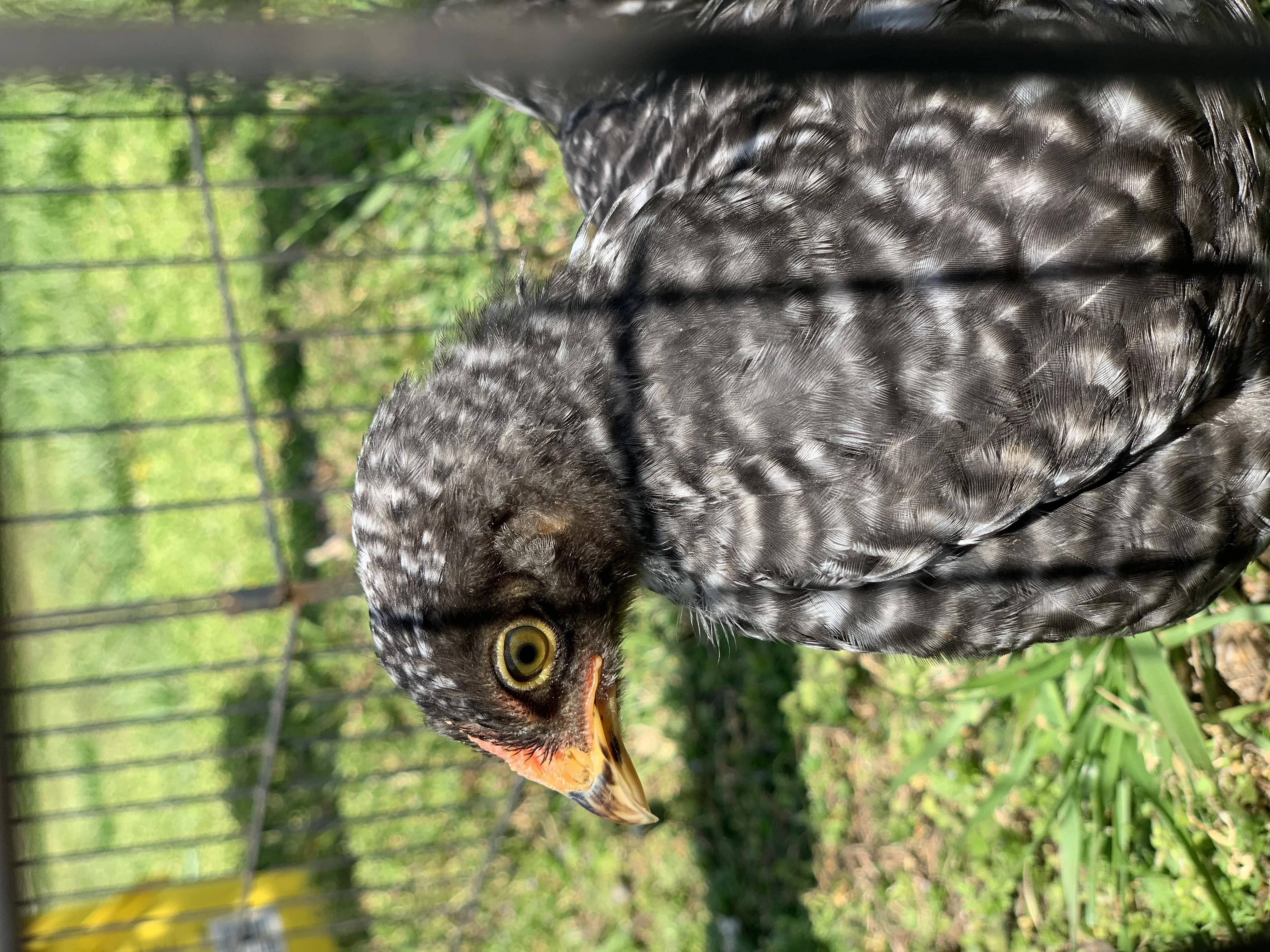 Female Teen - Banana Crispy
Female Teen - Banana Crispy
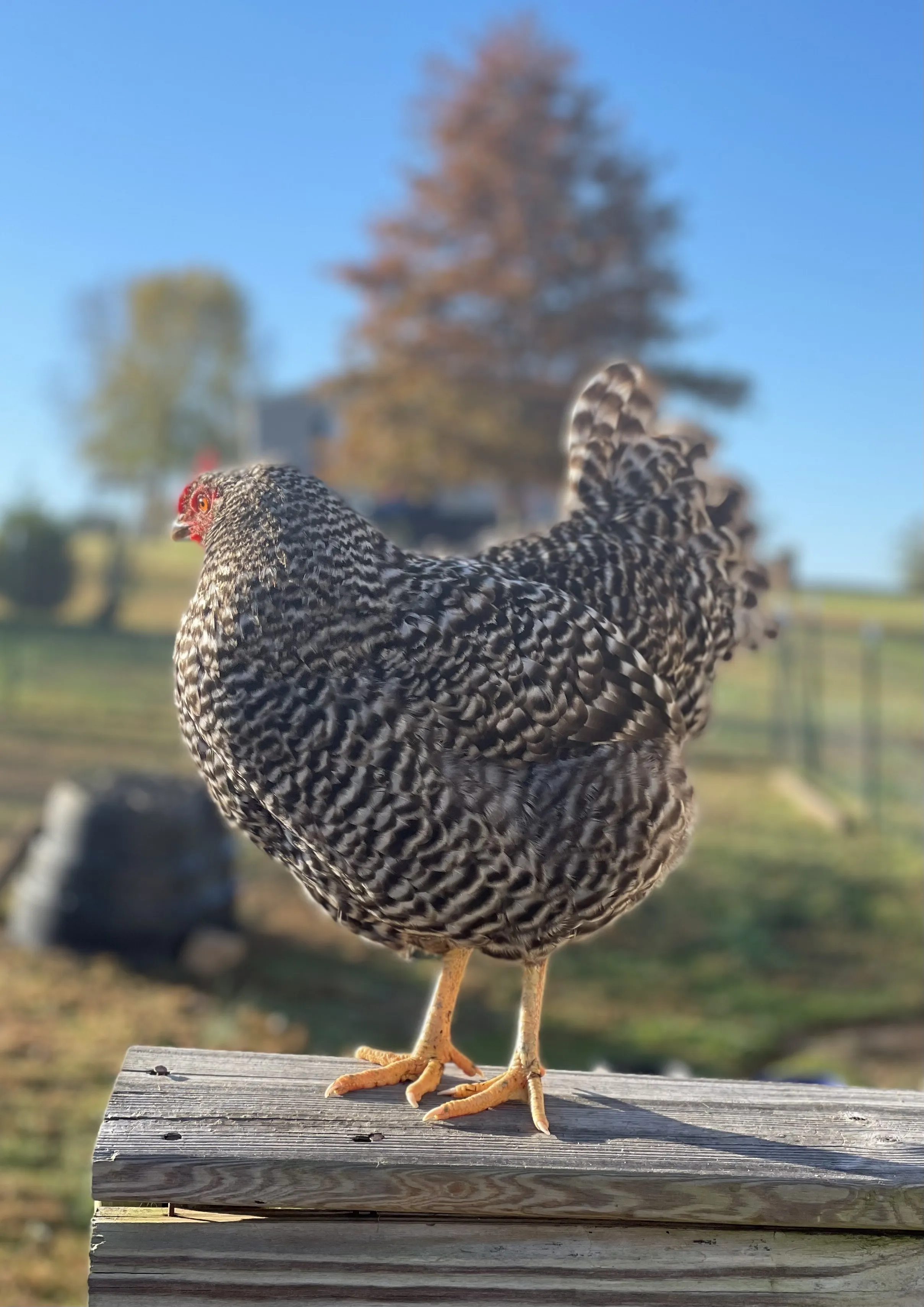 Female Adult
Female Adult
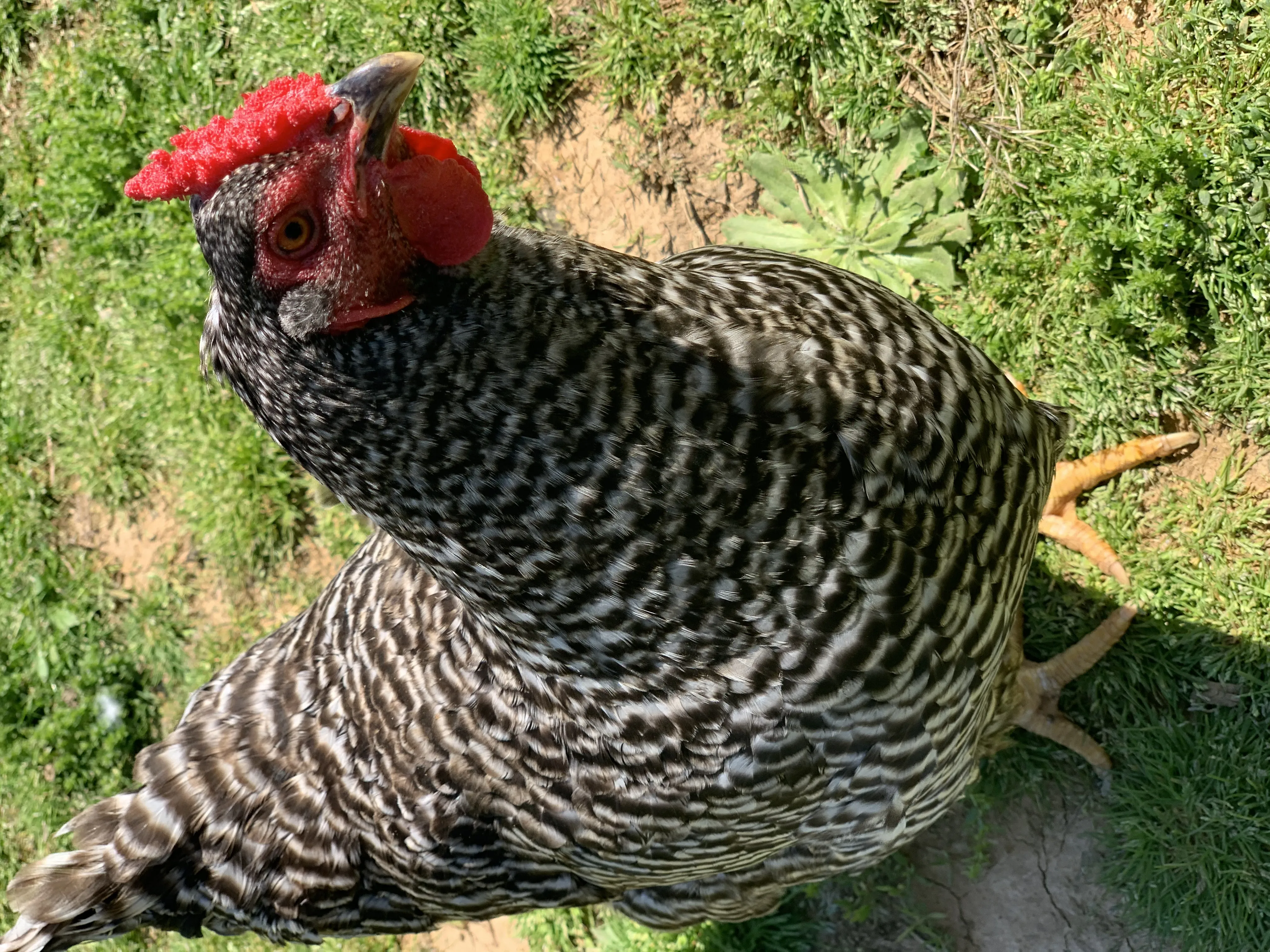
Baby, perched on my laptop
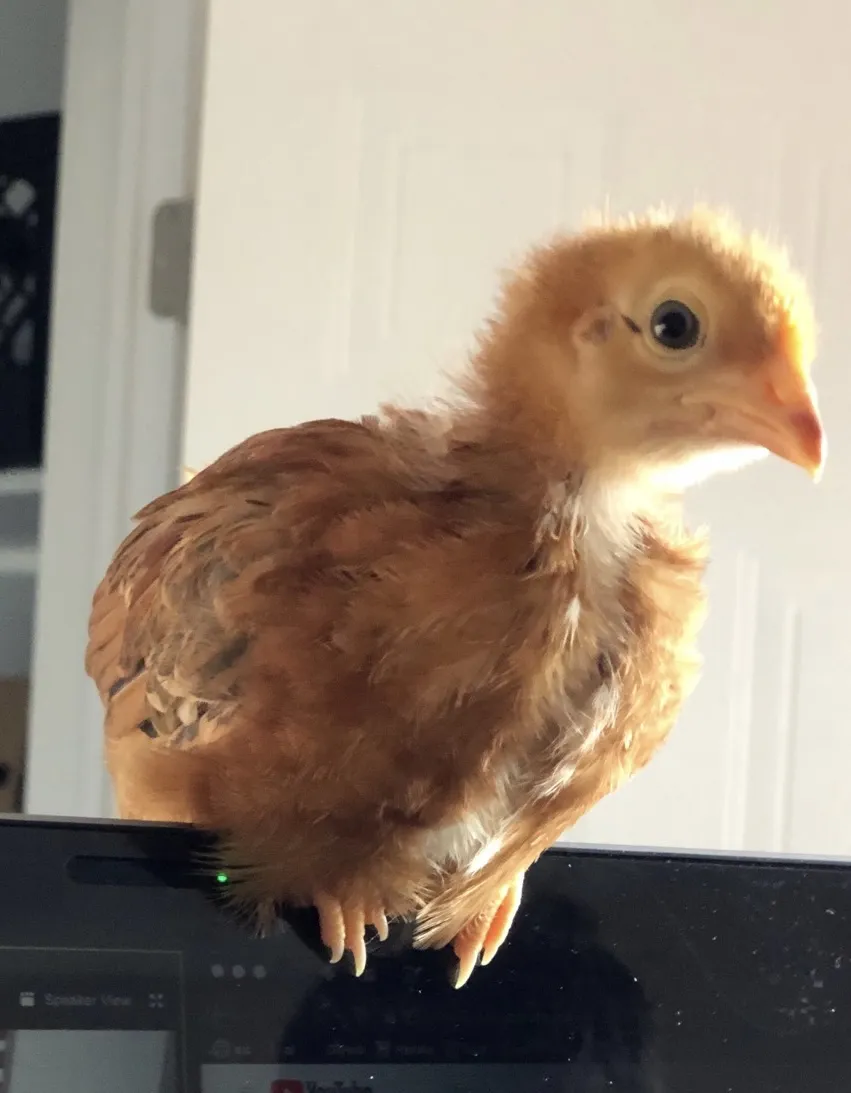 Teen
Teen
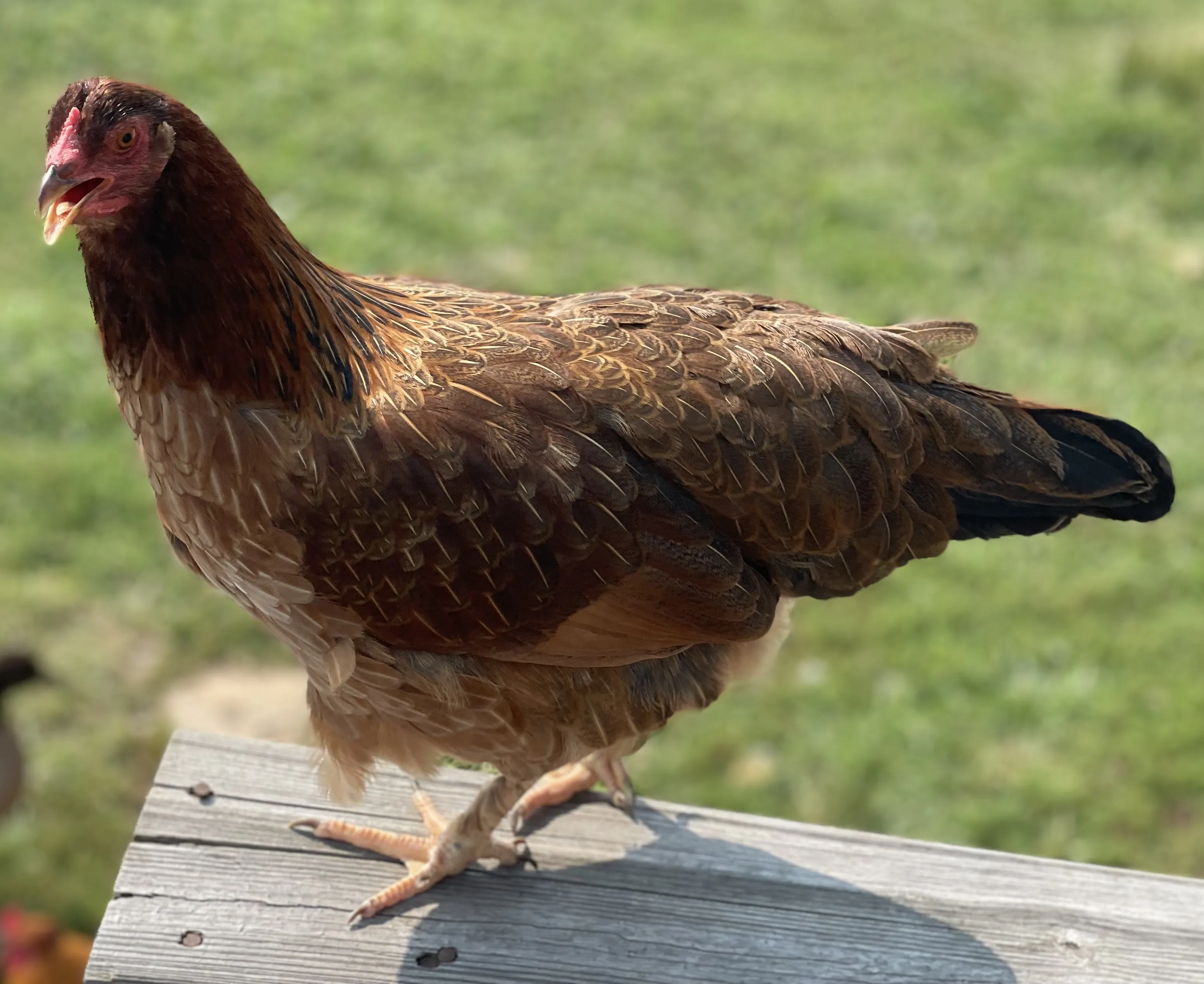 Female Adult
Female Adult
Male Adult - Pumpkin
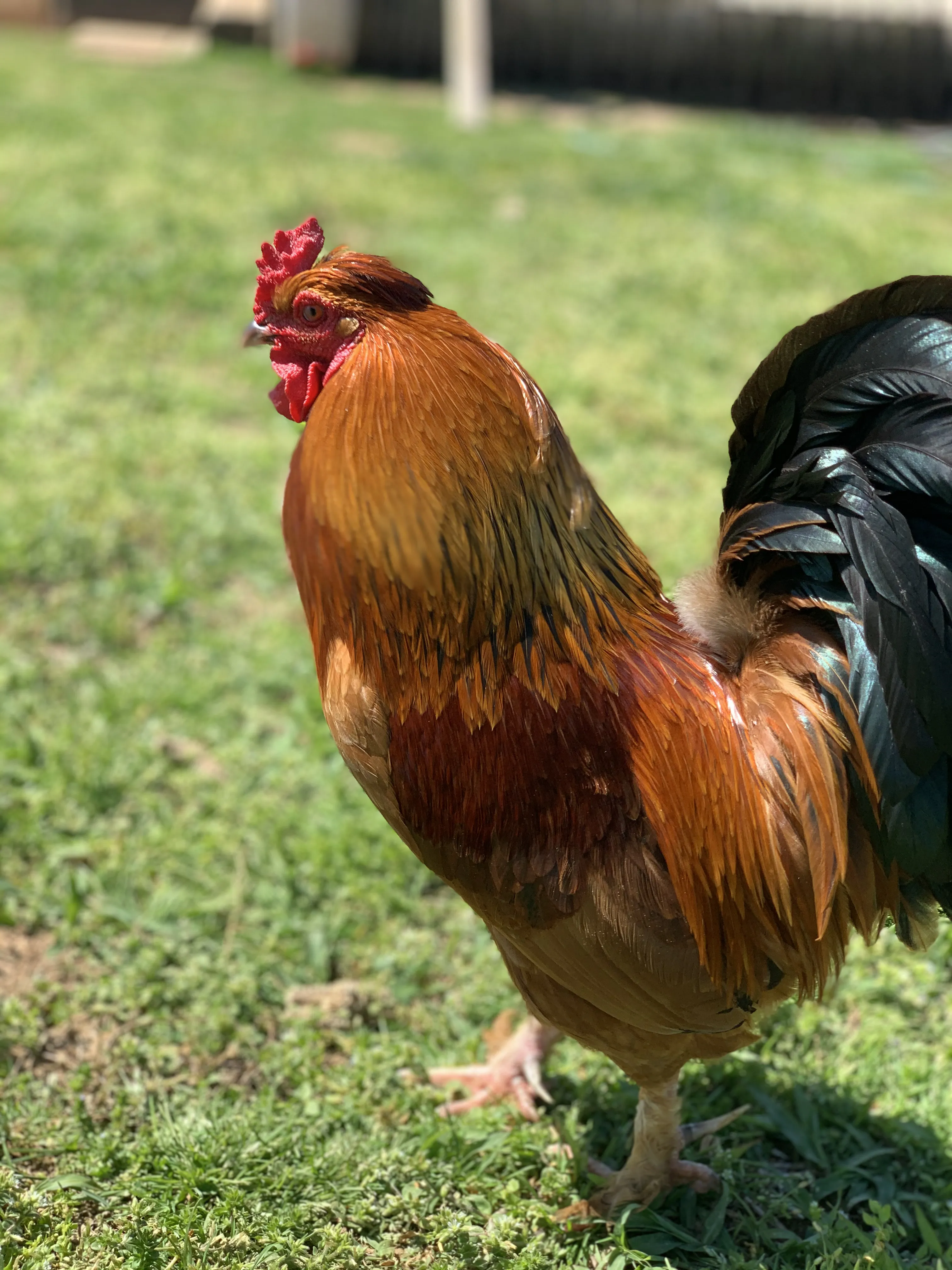 Female Adult - Freckle
Female Adult - Freckle
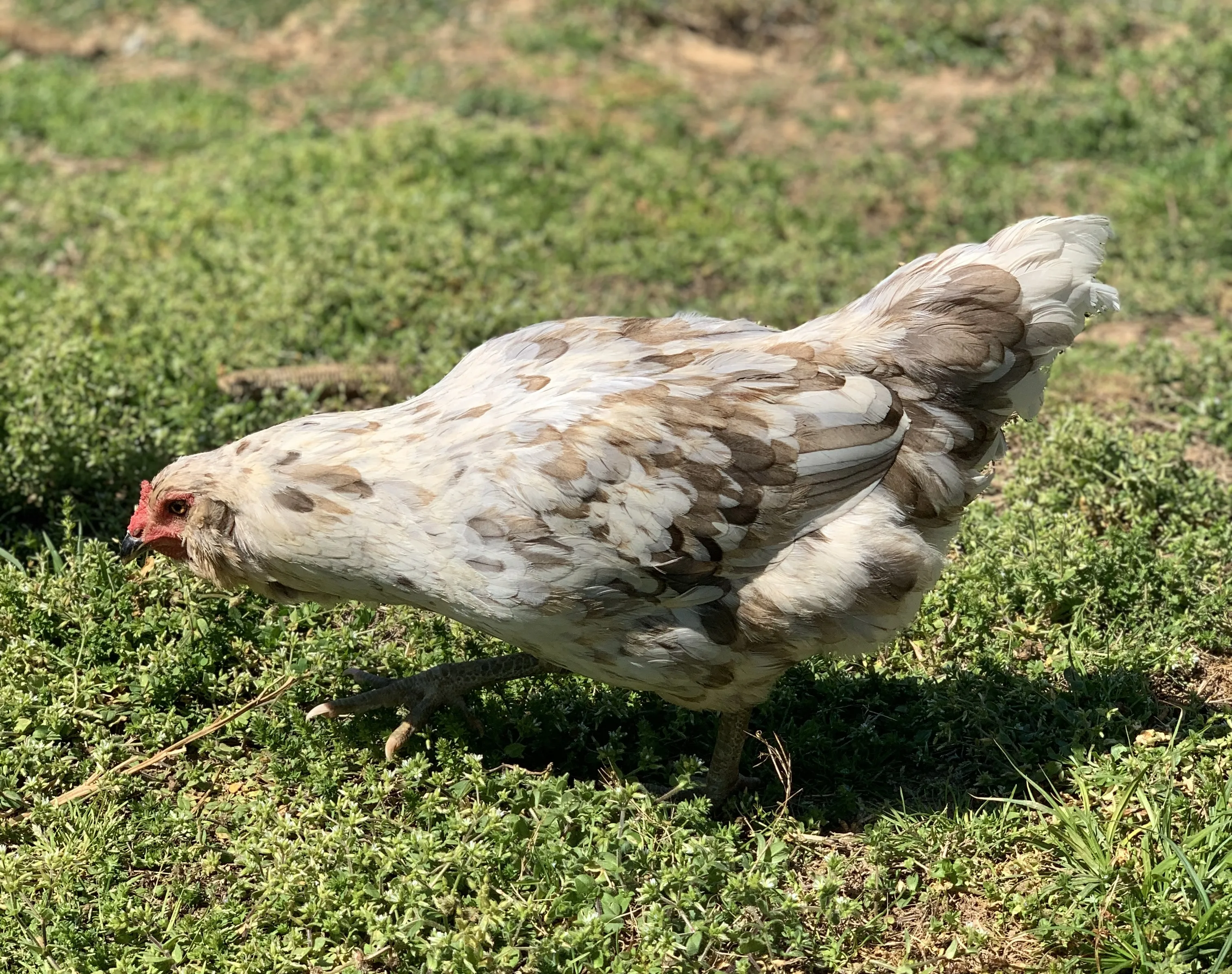
Male Adult

Teen
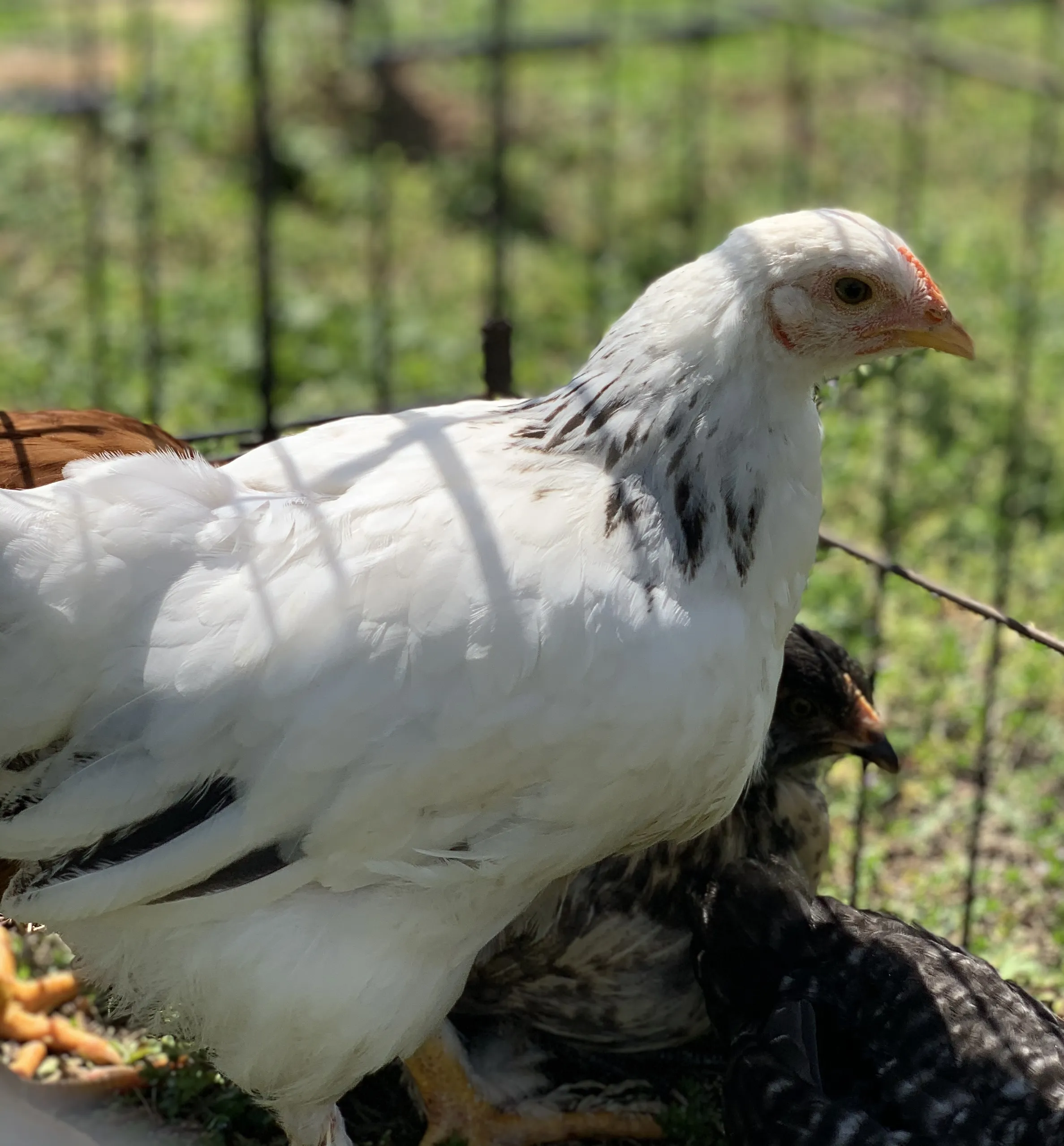 Female Adult
Female Adult
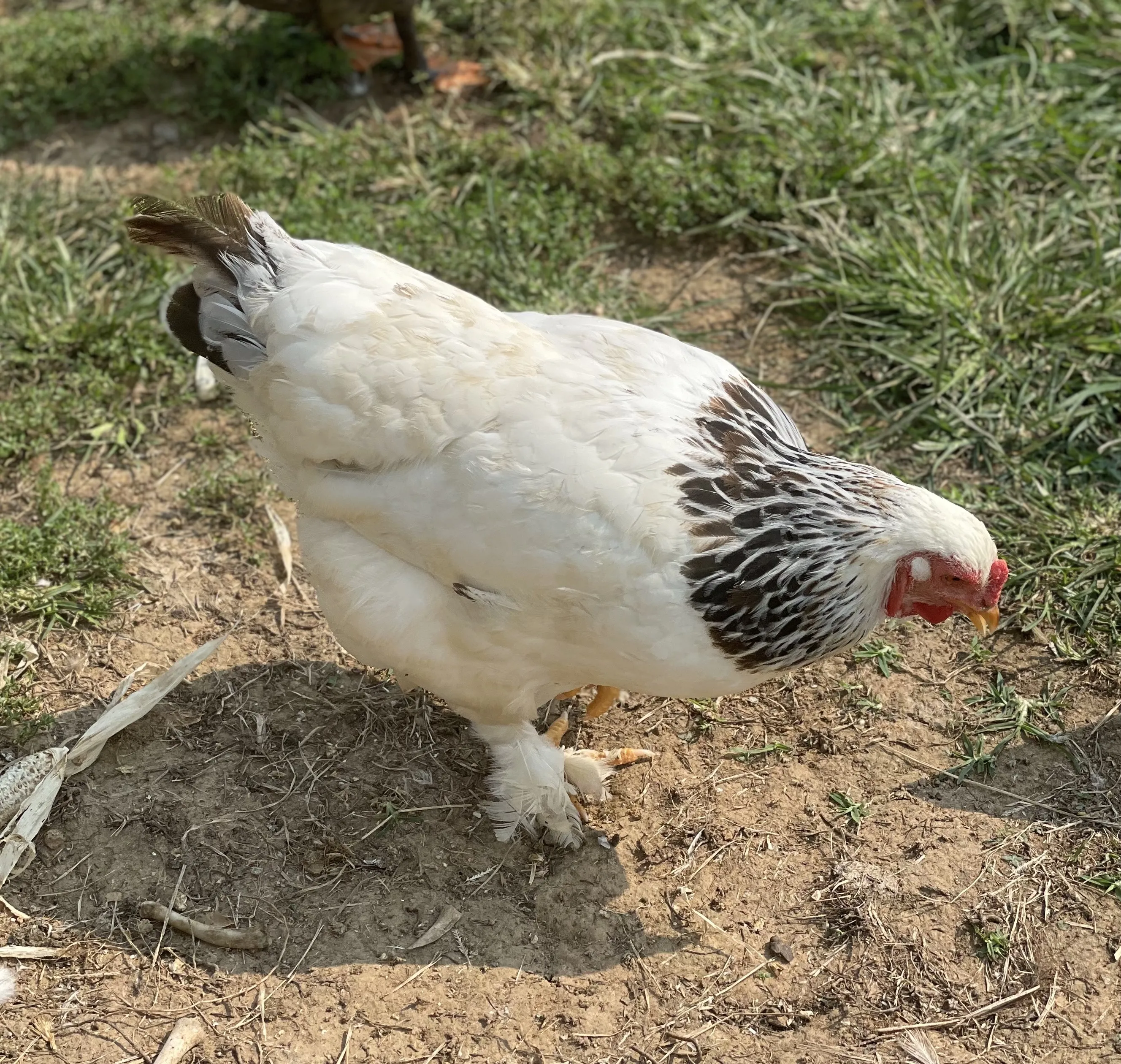
Female Baby
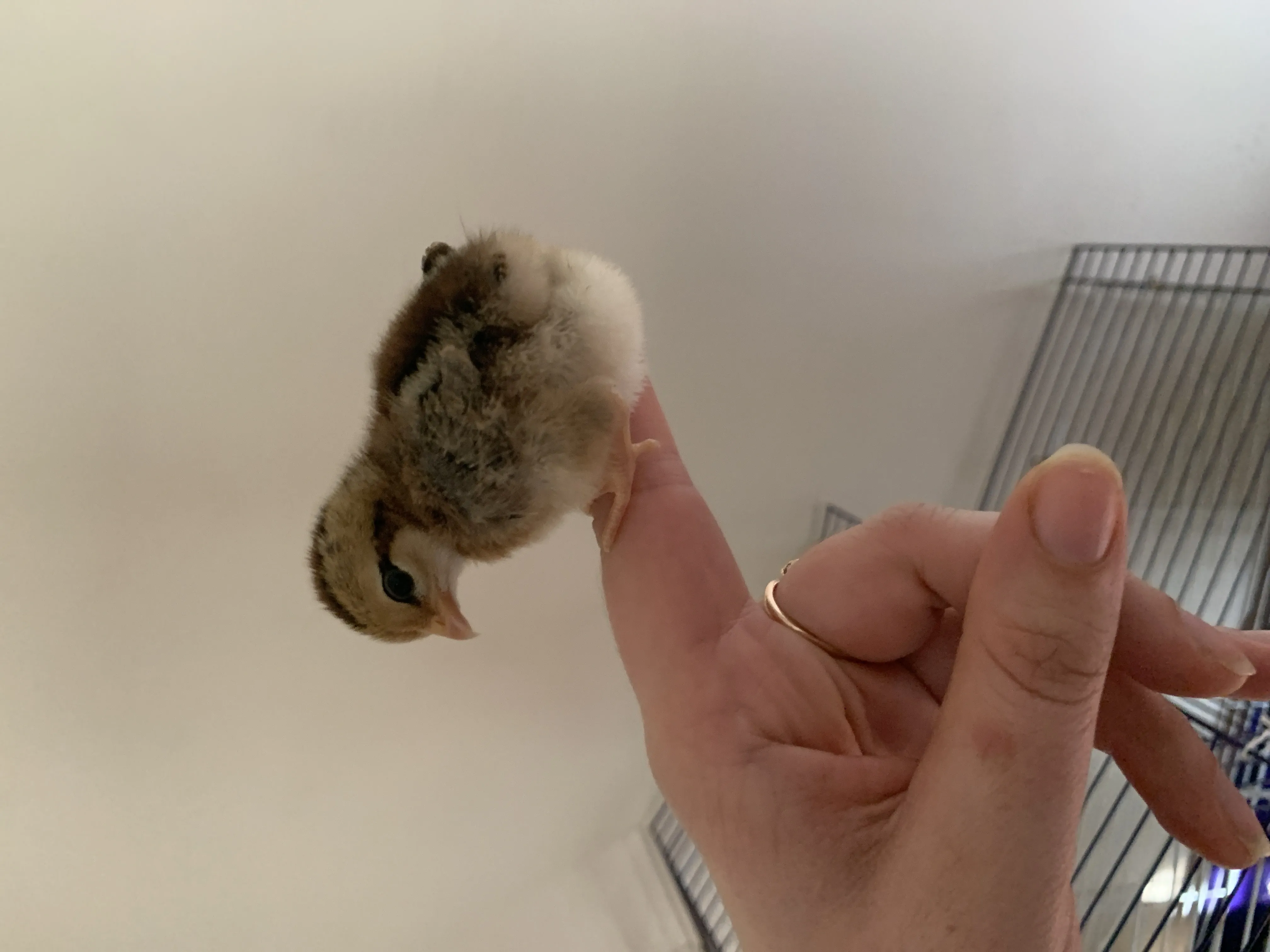 Female Adult
Female Adult
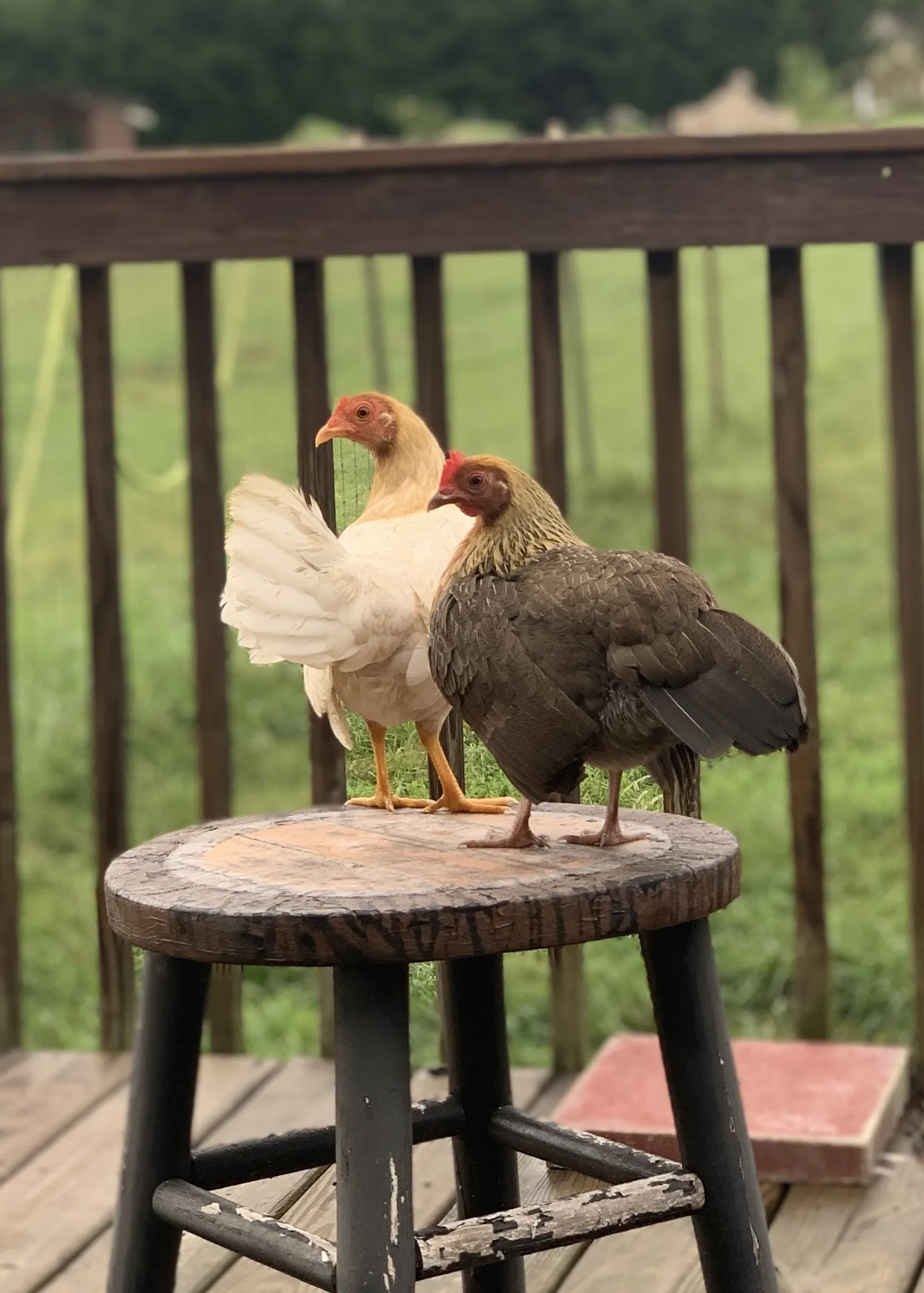
Male and Female Babies
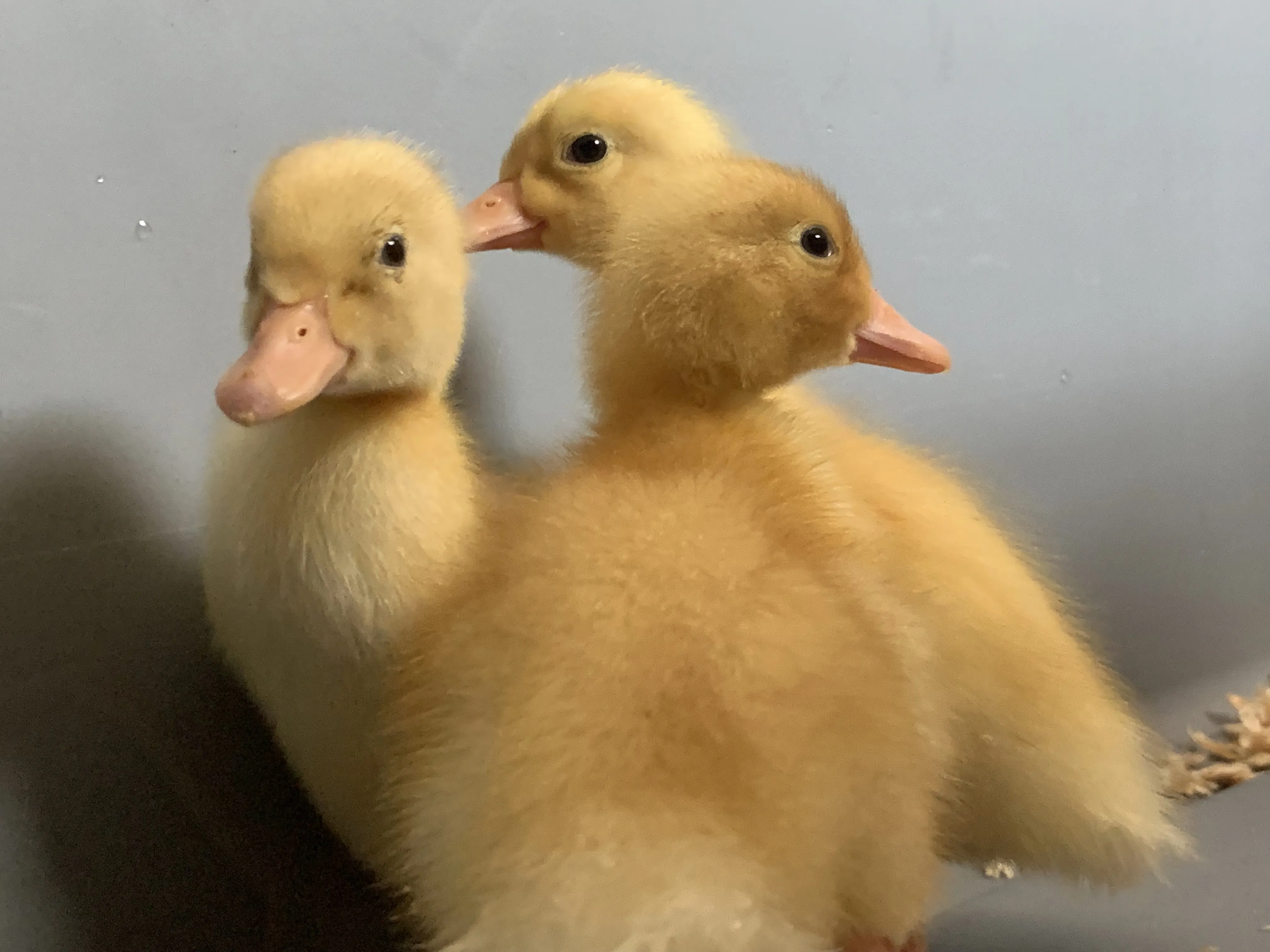 Donald - Male Adult
Donald - Male Adult
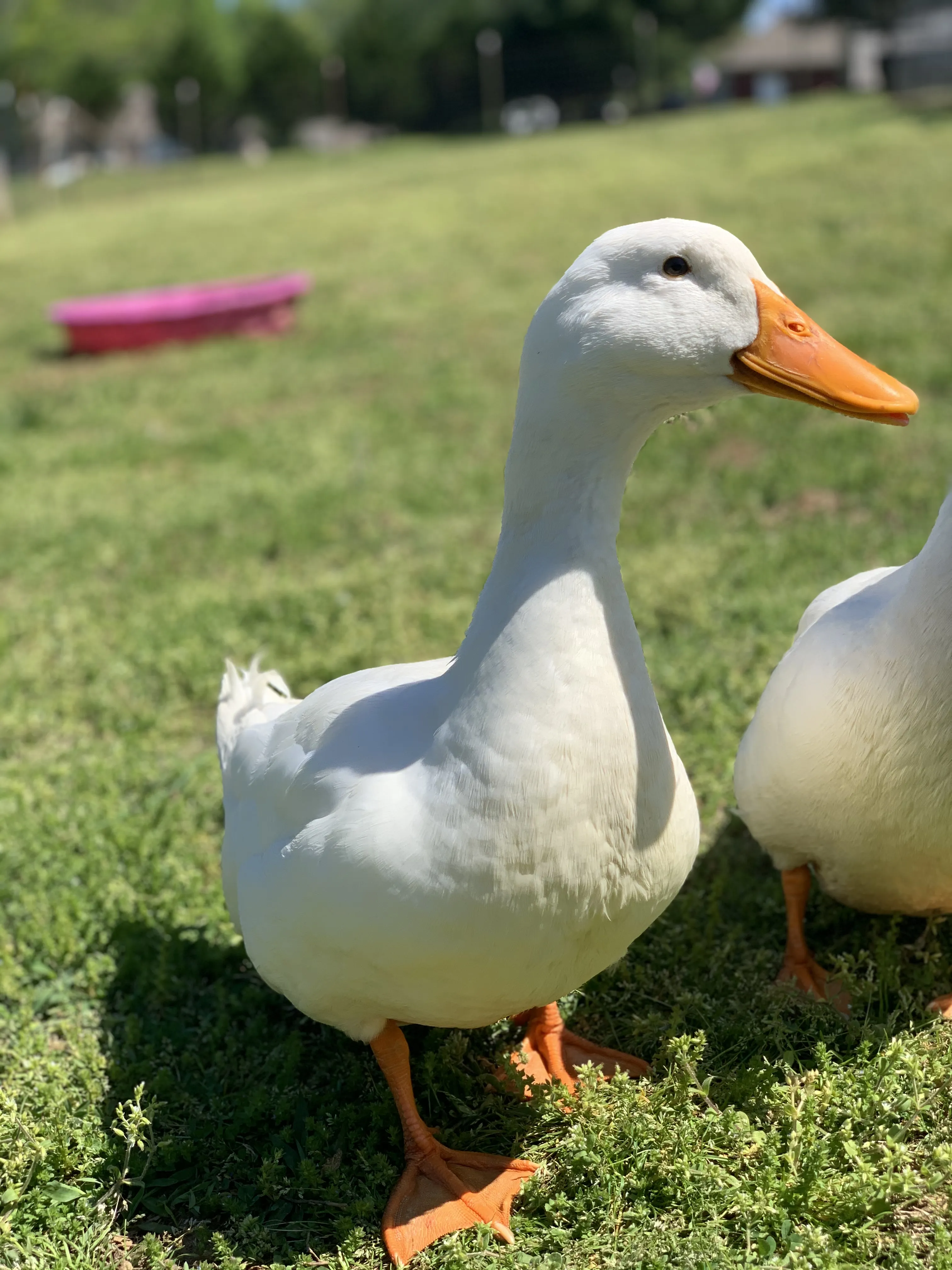
Baby
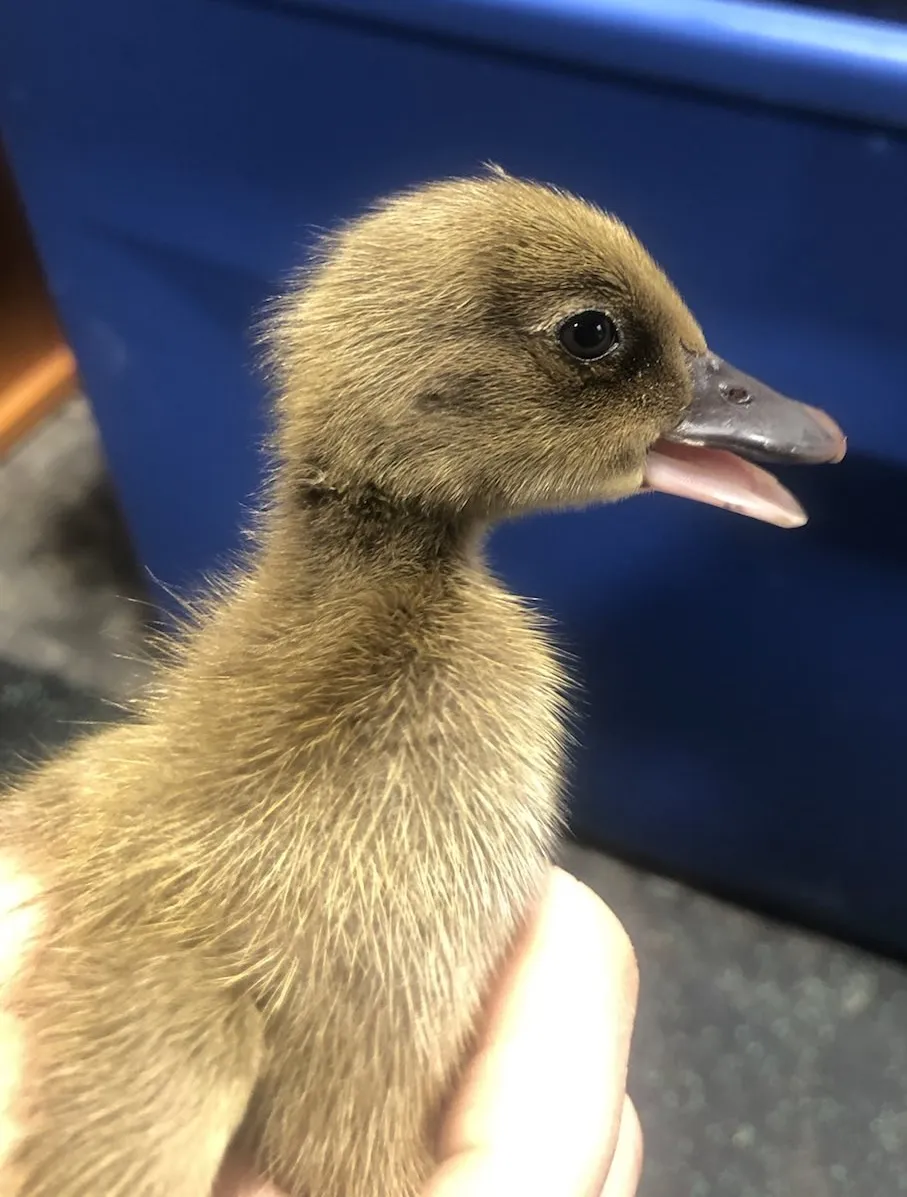 Randy - Male Adult (notice the curly tail!)
Randy - Male Adult (notice the curly tail!)
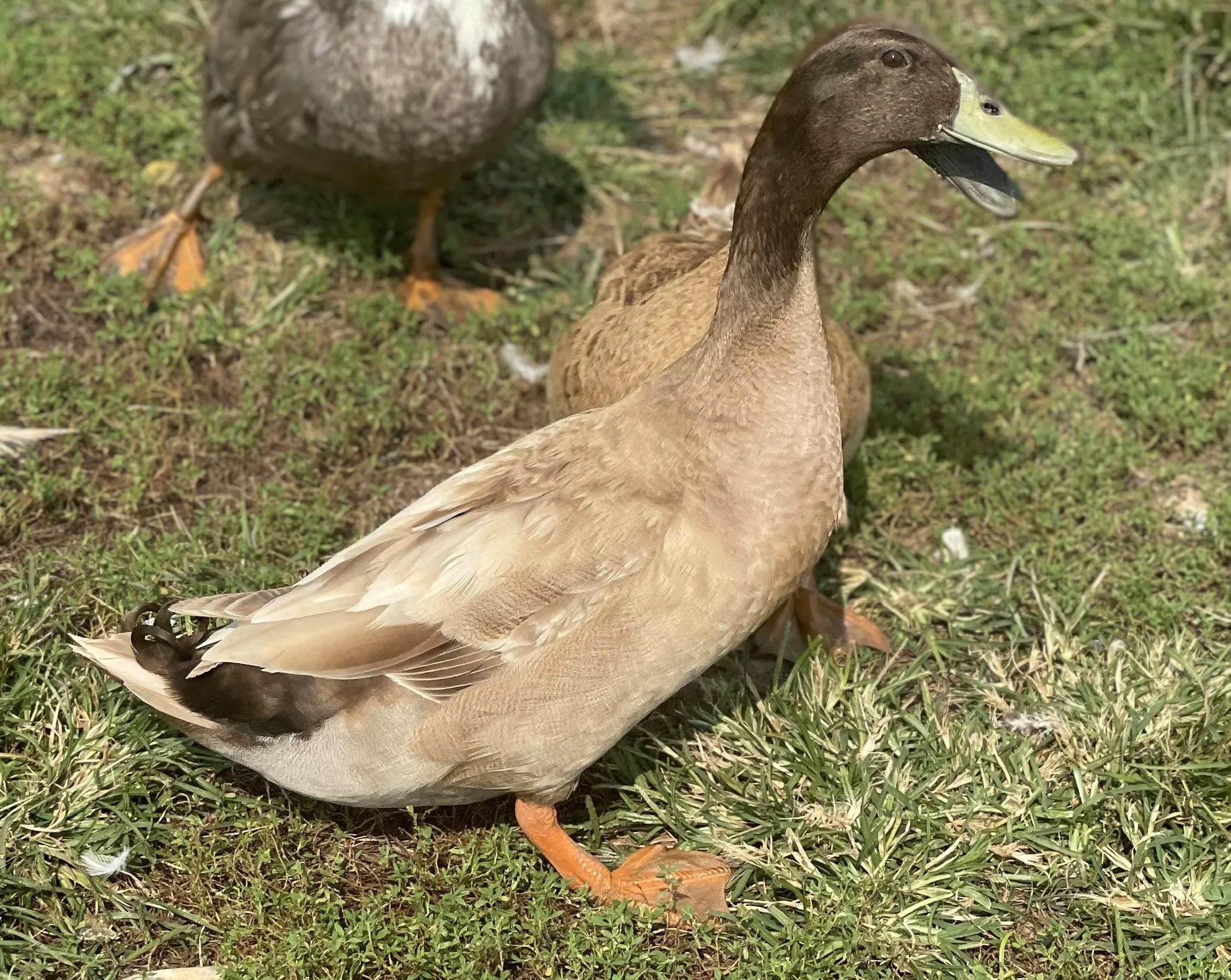
Female Babies
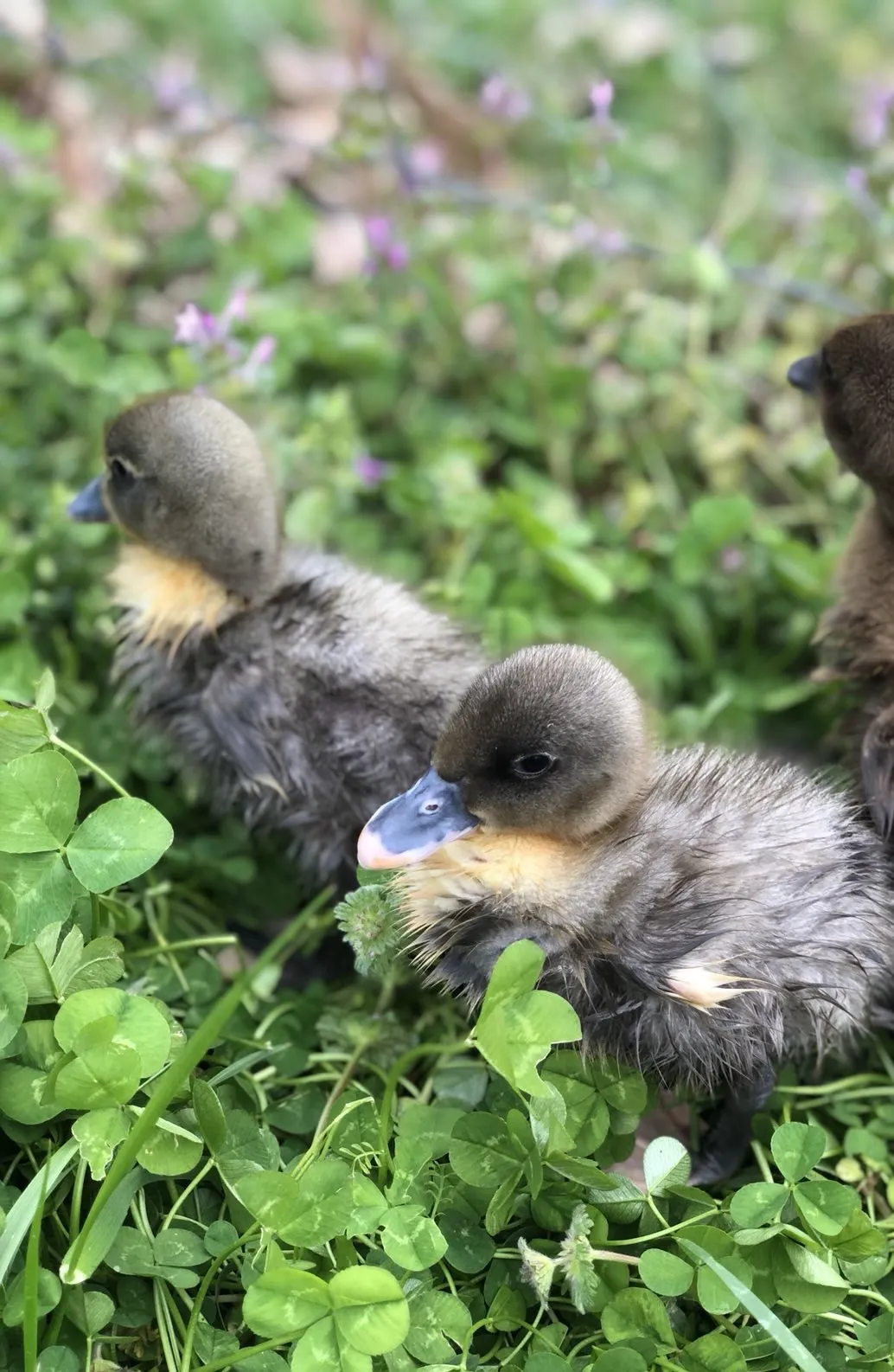
Farm
Chickens - Gallus gallus domesticus
Chickens require the least maintenance of the flock. They run down our hill when they see us come outside, flapping their wings, gliding down, sometimes to flight. We let them roam freely within our backyard fenced in area. The rooster protects them by alerting for hawks and finds them food by scratching and foraging. You never want more than one rooster per half a dozen hens or so, or else they'll fight, but you want them around for their great defensive properties. Some were hand raised and are quite friendly, happy to eat right out of your hand or jump in your lap.Barred Rock
Is what we call them in Tennessee, their full name is Plymouth Rock. Looking similar to California Gray or a Dominique, some of them actually might be mixed. They are black with white spots and stripes. Very sweet chickens, definitely one the smarter types. One of ours has learned to climb our goat fence by hooking her feet into the second to last top rows and hopping over to get more food outside our fence and is able to get back in when she wants as well. They enjoy being hand fed treats of meal worms, dried corn, and seeds. Female Baby
Female Baby
 Female Teen - Banana Crispy
Female Teen - Banana Crispy
 Female Adult
Female Adult

Rhode Island Red
Reds, like their name implies are very red in coloration. Some of the breeds we have maay be considered New Hapshires. These chickens are very commonly owned and widely recognized. They lay medium sized brown eggs. When hand raised and fed they are some of the most friendly chickens you will ever meet. They enjoy perching on hands and shoulders. Three of our Rhode Island Reds were hatched and hand raised by a 3rd Grade class at the previous Elementary School my wife worked at. They are also mixed with Americana and Brahma's, which is why their feathers have a slight sheen to them that is not commonly found on Rhode Island Reds. Teen
Teen
 Female Adult
Female Adult
Ameraucana
America!!! The males rare proud, strong, confronters. They are great scavengers for their hens and great protectors, calling out when predators like hawks are seen. We have a female splash type, named Freckle, that has a splash of black colors on her grayish white feathers and she lays blue eggs. Female Adult - Freckle
Female Adult - Freckle

Silkie
Silkie's are a very fluffy and funny looking chicken. Ours is white, but they can come in all different colors, but all have blue skin. Given their furriness, they are incapable of flying. They're very smart and fast, but docile. When mixing with the flock, they are generally loners, often not interacting with the others.
Brahma
Brahma Female Adult
Female Adult

Bantam
Tiny chickens! The Bantam are cute smaller than half the size of a normal chicken. They routinely jump through our gate doors and fence openings. They come in different color feathers, ones we've had were yellow/white and brown. Their eggs are tiny, about half as big as regular chicken eggs, but still just as good. Will be the lowest on the pecking order if left with their bigger-sized flock. Female Adult
Female Adult

Ducks - Anas platyrhynchos domesticus
Ducks were our second flock type, they quickly became my favorite because they greet you with large motioning tail wagging and happy loud quaking. I tend to quack back at them or make excited sounds and they perk up very fast. They love it when they have a clean water pond to clean themselves and play. An easy way to tell between male and female are their quacks. Drakes will make a neutral sound that sounds more guttural, think Donald Duck. Females make the onomatopoeia *quack* sound. Males also sometimes have a curled back feather and broader heads.American Pekin
American Pekins are probably what you think of when you think of a duck, considering how well-known Donald Duck is. They are a sleek white color, that when comparing their feather in front of a snowy background, have a yellowish tint. Donald - Male Adult
Donald - Male Adult

Khaki Campbell
Khaki Campbell Are the other type of duck that may come to mind easily, they're usually a mix of colors of brown, green, tan, and white. Our drake looks very similar to a Mallard. Randy - Male Adult (notice the curly tail!)
Randy - Male Adult (notice the curly tail!)

Blue Sweedish
They're definitely a hue of blue! They are very calm, but sometimes loud when walking past them as to get your attention. Swedish Blue